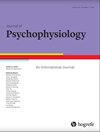两班制的心血管和自我报告恢复
IF 0.9
4区 心理学
Q4 NEUROSCIENCES
引用次数: 1
摘要
摘要恢复对于保持工人的健康和效率是必要的。轮班工作与延迟的恢复过程有关。本研究的目的是检查德国酒店和餐饮业轮班和日工的心血管和自我报告的恢复措施。此外,它旨在澄清在影响恢复的其他因素(放松能力、生活方式)的情况下,轮班组的差异在多大程度上。样本组包括64名替代轮班工人(两班制,夜间工作比例低)和96名受雇于酒店和餐饮行业的日薪工人。在工作日(包括工作、休闲和睡眠阶段)进行24小时血压监测,以评估休闲和睡眠期间心血管减少情况。在为期4天的自我评估期内测量血压状况。自我报告措施,包括睡眠质量(匹兹堡睡眠质量指数,PSQI)、工作与生活平衡(WPC)、放松能力(FABA)和生活方式因素(体育活动、吸烟、饮酒),通过问卷进行评估。61名参与者(36%)为高血压患者。在轮班工人和白班工人中,计算出的工作-休闲、工作-睡眠和休闲-睡眠之间的差异对降低血压的心血管恢复没有显著影响。倒班工人报告的工作与生活的平衡明显较差(p = 0.017),放松的能力下降(p = 0.001),定期体育活动减少(p = 0.003)。酒店和餐饮业两班制内的工作量对心血管疾病的影响似乎小于对自我报告的康复措施的影响。决定因素是放松的能力,这意味着心理上脱离工作。为了实现全面的回收,一个优化设计的回收周期对于移位系统是必要的。本文章由计算机程序翻译,如有差异,请以英文原文为准。
Cardiovascular and Self-Reported Recovery in Two-Shift Systems
Abstract. Recovery is necessary to maintain workers’ health and efficiency. Shift work has been associated with delayed recovery processes. The objective of this study was to examine the cardiovascular and self-reported recovery measures of German shift and day workers in the hotel and catering industry. Furthermore, it aimed to clarify to what extent shift groups differentiate given additional factors that influence recovery (ability to relax, lifestyle). The sample group consisted of 64 alternative shift workers (two-shift system with a low proportion of night work) and 96-day workers employed in the hotel and catering industry. Blood pressure monitoring was conducted for 24 hr during a working day, including the phases of work, leisure, and sleep, to assess cardiovascular reduction during leisure and sleep. The blood pressure status was measured over the course of a 4-day self-assessment period. Self-reported measures, including quality of sleep (Pittsburgh Sleep Quality Index, PSQI), work-life balance (WPC), ability to relax (FABA), and lifestyle factors (physical activity, smoking, drinking), were assessed through questionnaires. Sixty-one participants (36%) were hypertensives. There were no significant effects of cardiovascular recovery regarding the reduction of blood pressure for the calculated differences between WORK – LEISURE, WORK – SLEEP, and LEISURE – SLEEP among shift and day workers. Shift workers reported a significantly less favorable work-life balance ( p = .017), a decreased ability to relax ( p = .001), and less regular physical activity ( p = .003). The workload within the two-shift system of the hotel and catering industry seems to have a lesser effect on cardiovascular means than on self-reported measures of recovery. The decisive factor is the ability to relax, which means psychological detachment from work. To enable a comprehensive recovery, an optimally designed recovery cycle is necessary for shift systems.
求助全文
通过发布文献求助,成功后即可免费获取论文全文。
去求助
来源期刊

Journal of Psychophysiology
医学-神经科学
CiteScore
2.60
自引率
7.70%
发文量
25
审稿时长
>12 weeks
期刊介绍:
The Journal of Psychophysiology is an international periodical that presents original research in all fields employing psychophysiological measures on human subjects. Contributions are published from psychology, physiology, clinical psychology, psychiatry, neurosciences, and pharmacology. Communications on new psychophysiological methods are presented as well. Space is also allocated for letters to the editor and book reviews. Occasional special issues are devoted to important current issues in psychophysiology.
 求助内容:
求助内容: 应助结果提醒方式:
应助结果提醒方式:


